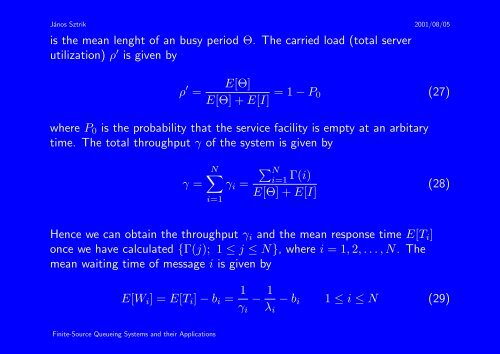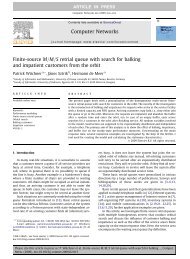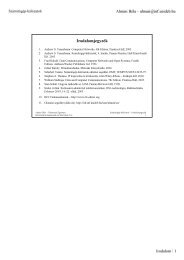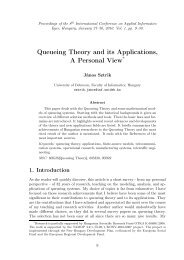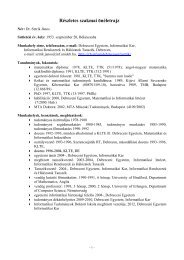Finite-Source Queueing Systems and their Applications
Finite-Source Queueing Systems and their Applications
Finite-Source Queueing Systems and their Applications
Create successful ePaper yourself
Turn your PDF publications into a flip-book with our unique Google optimized e-Paper software.
János Sztrik 2001/08/05<br />
is the mean lenght of an busy period Θ. The carried load (total server<br />
utilization) ρ ′ is given by<br />
ρ ′ =<br />
E[Θ]<br />
E[Θ] + E[I]<br />
= 1 − P0<br />
(27)<br />
where P0 is the probability that the service facility is empty at an arbitary<br />
time. The total throughput γ of the system is given by<br />
γ =<br />
N�<br />
i=1<br />
γi =<br />
� N<br />
i=1 Γ(i)<br />
E[Θ] + E[I]<br />
Hence we can obtain the throughput γi <strong>and</strong> the mean response time E[Ti]<br />
once we have calculated {Γ(j); 1 ≤ j ≤ N}, where i = 1, 2, . . . , N. The<br />
mean waiting time of message i is given by<br />
E[Wi] = E[Ti] − bi = 1<br />
<strong>Finite</strong>-<strong>Source</strong> <strong>Queueing</strong> <strong>Systems</strong> <strong>and</strong> <strong>their</strong> <strong>Applications</strong><br />
γi<br />
− 1<br />
λi<br />
(28)<br />
− bi 1 ≤ i ≤ N (29)


